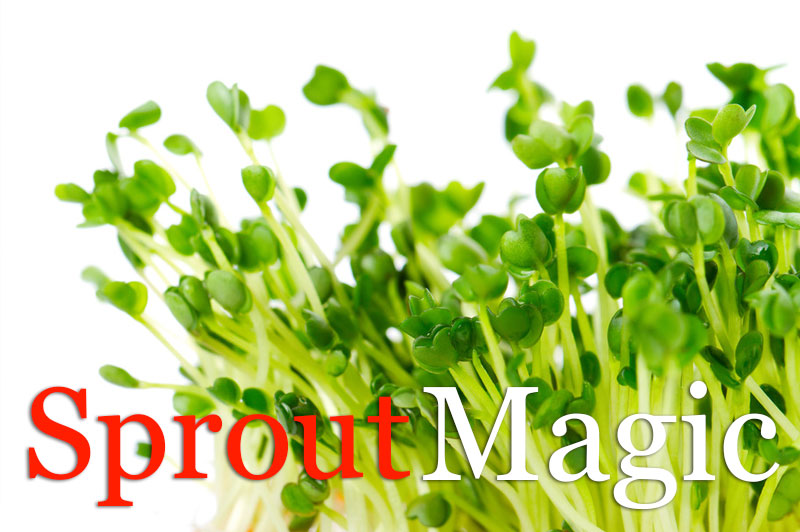I cannot recommend sprouts highly enough. Not only can they be grown in your kitchen to provide delicious and inexpensive organic salads all year round, but they boast some extraordinary energy-giving properties.
When a seed, pulse or grain begins to germinate, it becomes a wondrous energy factory, producing vast amounts of essential nutrients. For instance, the vitamin E content of wheat grains - already one of the best sources in nature - increases up to three times upon sprouting. The B2 content of oats rises by at least 1300 per cent. Apart from the vitamins, sprouts also contain considerable quantities of minerals and even protein, all in readily-assimilable form. The process of germination, like the process of digestion, converts complex energy reserves into the simple energy compounds needed for metabolism. Sprouts are in effect a 'predigested' food, so that when you eat them your body is able to absorb their nourishment. They are also rich in chlorophyll, which supports your body's production of hemoglobin (the oxygen carrying molecule in the blood), vital for cell energy metabolism.
In just a few minutes a day, you can cultivate a continual sprout supply so that you never run out of fresh salad ingredients.
One of the simplest ways to grow a variety of sprouts is as a mix. I particularly like a combination of alfalfa with lentil and mung. To this I occasionally add a few fenugreek or radish seeds for extra zest. Another of my favorites is wheatsprouts, which have a delicious chewy texture and nutty flavor. These I sprout on their own because they are ready so quickly - usually in 2-3 days. Incidentally, even someone with a food sensitivity to wheat can usually enjoy wheat sprouts problem-free, thanks to the changes that occur in the grain during germination.
Leslie's sprout magic mix
In a large glass jar place 6 tablespoons of alfalfa seeds and 2 tablespoons each of lentils and mung beans. Fill the jar with water and leave to soak for about 12 hours (or overnight). Drain the excess water away by placing a sieve over the neck of the jar, and then rinse and drain twice more. Divide the mixture between two (or more) jars so that there are no more than two inches of sprouts in each. This way your sprouts will have room to breathe and grow. Rinse and drain the sprouts twice a day.
Alternatively, take a seed tray and line it with paper kitchen towels, then spread the sprout mix over the bottom of it. Simply spritz the sprouts with water from a plant spray twice a day and stir them around gently for aeration. After 4-6 days, when the alfalfa seeds have developed little green leaves, the mix is ready to harvest. Rinse the sprouts well and drain. Store them in the fridge in an airtight container or in sealed polythene bags, to be used abundantly in salads and other vegetable dishes.
